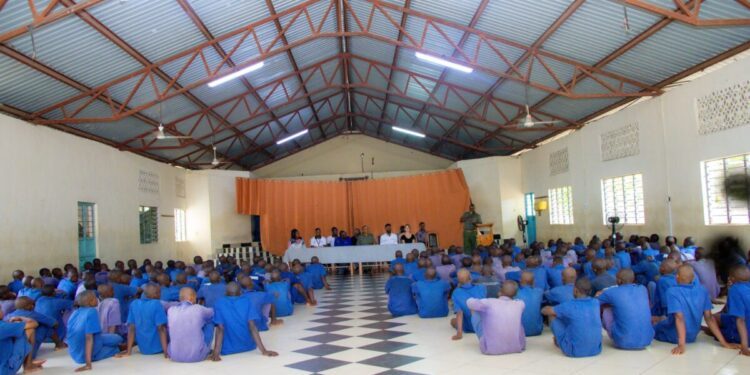A recent report has recommended that cases involving children be adjudicated in family courts, in accordance with the Child Rights Act.
Titled ‘An Assessment of the Situation of Children and Young Adults Deprived of Liberty in Nigeria’, the 2024 report was developed by the Federal Ministry of Interior with support from UNICEF Nigeria and published in 2025.
The study revealed 74 per cent of children and young adults in Nigeria’s borstal institutions were either awaiting trial or awaiting the outcome of legal reports. Only 26 per cent had been convicted, reflecting significant delays in the juvenile justice system.
Between 2018 and 2022, 133,906 children and young adults were detained in Nigeria. Of these, 122,564 were held in adult custodial centres, 7,375 in remand homes, and 3,967 in borstal institutions.
The assessment drew data from 87 adult custodial centres, three borstal institutions, and 22 remand homes across the nation.
The report offers a detailed analysis of the conditions and treatment of minors in conflict with the law.
It advocates for reforms that align with international standards such as the United Nations Convention on the Rights of the Child.
It noted that trying children in conventional, magistrate, or Sharia courts violates the provisions of the CRA and international best practices.
“The current system of trying children and young adults in conventional courts, magistrate courts, and sometimes Sharia courts contravenes the law. It is not good practice, as it increases the criminalisation of children and young adults and also has the tendency to treat them like adult criminals,” the report stated.
To address this, the report recommended establishing more family courts, especially in states currently lacking functional family court systems.
It also proposed that all courts handling children’s cases should operate within defined timelines, supported by robust monitoring mechanisms.
Additionally, the report recommended the provision of free legal aid for children through the Legal Aid Council of Nigeria and other relevant stakeholders to ensure that cases were not delayed due to a lack of representation.
It further urged full implementation of Section 35 of the Nigerian Correctional Service Act, 2019, which mandated the establishment of separate male and female borstal training institutions for child offenders in all states.
“There is an urgent need to improve the living conditions in places of detention. This includes, but is not limited to, improved welfare, better food quality and quantity, and access to clean water and sanitation,” it said.
The report also highlighted the need for proper classification of offenders by age, nature of offence, and case status. It stressed that minors should not be housed in adult facilities and, if unavoidable, must be held in separate areas to avoid exposure to hardened criminals and harmful behaviours such as bullying.
It recommended increased access to formal and vocational education for detained children and young adults, as well as enhanced rehabilitation services, including psychosocial support and counselling provided by trained professionals.
Furthermore, it proposed that law enforcement agencies should designate trained desk officers to handle cases involving juveniles. Investigations, it added, should be thorough to avoid unnecessary incarceration, particularly in cases where there is no prima facie evidence.
“Judicial and police officers have indicated that minor cases that could be settled outside the justice system are generally referred to them. Diligent investigation will ensure such cases are either promptly discharged or never reach court,” the report said.
The report also recommended maintaining a separate, comprehensive database for children and young adults in detention to aid in identification, case tracking, and service delivery.
Additionally, it proposed periodic mental health assessments by clinical psychologists to support children dealing with anxiety and depression while in custody.
(NAN)






